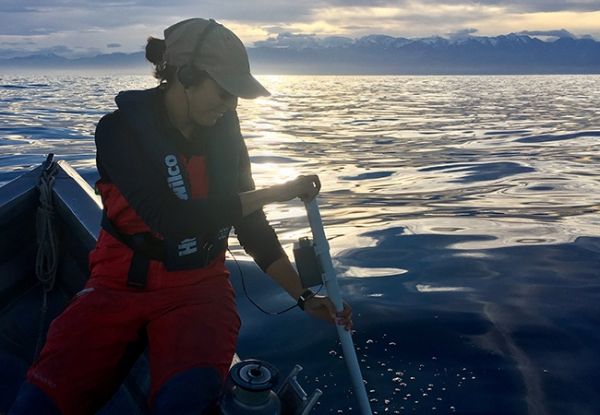Otago scientists studying sperm whales off the coast of Kaikōura have discovered earthquakes affect their ability to find food for at least a year.
The University of Otago-led research is the first to examine the impact of a large earthquake on a population of marine mammals, and offers new insight into how top predators such as sperm whales react and adapt to a large-scale natural disturbance.
Changes in habitat use by a deep-diving predator in response to a coastal earthquake, has recently been published in Deep Sea Research Part I.
Earthquakes and aftershocks can affect sperm whales in several ways, the study explains.
The whales depend on sound for communication, detection of prey and navigation and are also highly sensitive to noise.
Earthquakes produce among the loudest underwater sounds which can induce injuries, hearing damage, displacement and behavioural modifications.
While earthquakes and other extreme natural events are rare occurrences, they can really shift the state of ecosystems by wiping out animals and plants, lead author and Marine Sciences Teaching Fellow Dr Marta Guerra says.
Read more at University Of Otago
Photo: Dr Marta Guerra tracking sperm whales. Photo credit Marine Mammal Research Lab, University of Otago.


